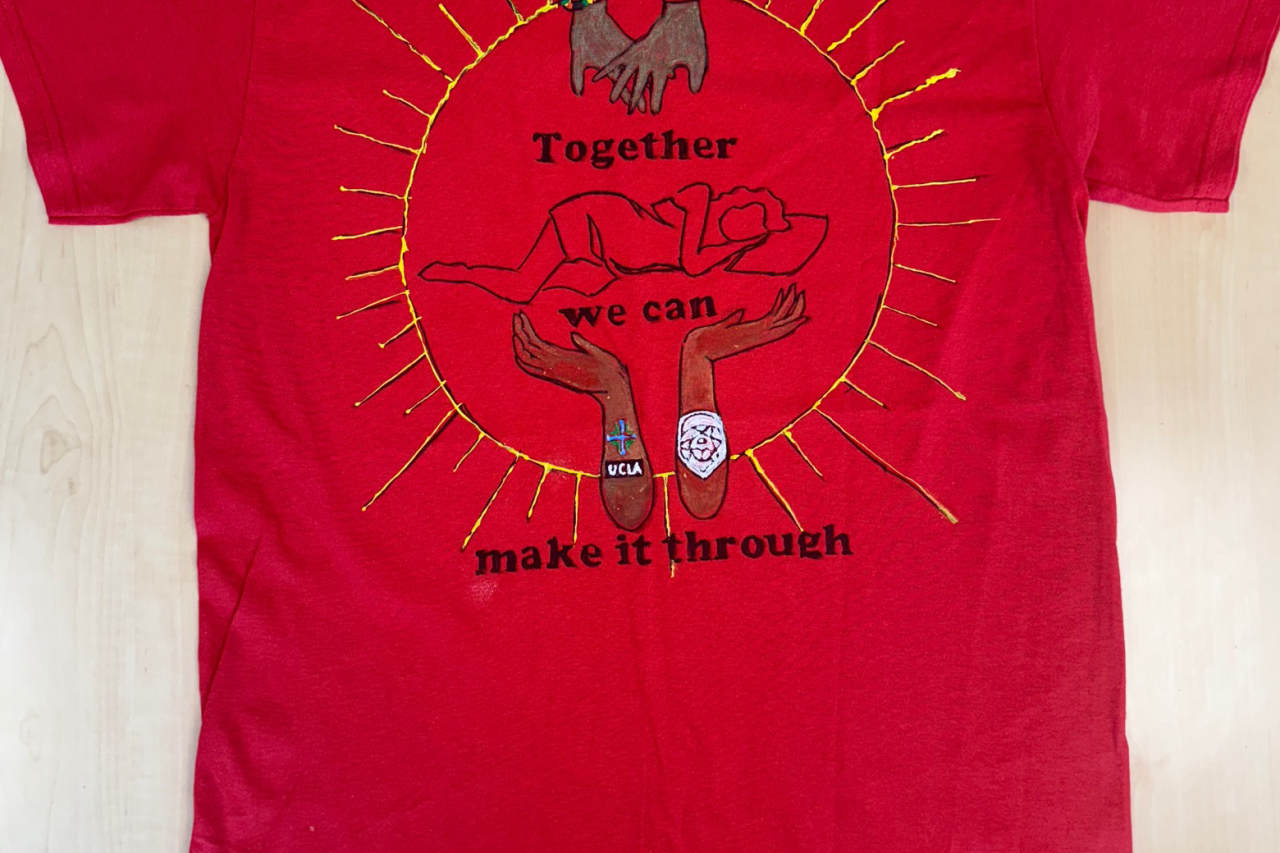Mary Klein is done talking about the violent sexual assault that knocked out her front teeth, broke her jaw in multiple places, caused a blood clot in her brain and left her bleeding and unconscious on a Venice street in 2024.
But before she closes the book on this chapter of her life, she wants to say thank you – to the experts who coordinated her medical care; to the many friends and neighbors who brought food to her home as she recovered; to the local merchants who donated gifts and supplies; to the colleagues who started a GoFundMe to help cover her medical costs; and to Dia Williams, LCSW, a counselor at the UCLA Rape Treatment Center (RTC), who provided a gentle, supportive listening ear as Klein came back to life.
“I have to start going forward,” Klein says. “I can’t let (the incident) define me and define my future. … But I want to talk about how much people have helped me. That’s important for me, because I have so much gratefulness to everyone who’s helped me in this process.”
A shocking attack
Klein was left for dead that April night. A second woman who was also attacked, Sarah Alden, died of her injuries. Their assailant pleaded no contest to charges of rape, murder, torture and other crimes in September 2024 and was sentenced to life in prison without parole.
While Klein says she has virtually no memory of the attack, nor any pain after having five plates installed in her face to repair her shattered jaw, lingering physical issues remind her of what she survived.
“My teeth are still in process … I have to get a bridge done,” she says. “When I get up out of bed, I get dizzy sometimes, because some of the little crystals in my ear got knocked out of place. I apparently was kicked in the head quite a few times. I don’t remember any of that.”
What she does remember is the kindness from her community. Her medical care team included Garni Barkhoudarian, MD, at Providence Pacific Neuroscience Institute in Santa Monica; Amy Asheroff, NP, at Venice Family Clinic; Charles M. Llewellyn, MD, at UCLA Health; and Williams at RTC.
Williams first called Klein as she was recovering from surgery to repair her jaw. Klein initially declined counseling.
“The last thing I wanted to do was talk about the horrible thing that happened,” she says.
A safe place for survivors
Williams, an RTC crisis counselor and trauma-trained therapist, says it’s common for assault survivors to want to avoid discussing the incident.
“A lot of times, they’re like, ‘I’m just going to put it behind me’ or ‘I’ve been able to get over things; I’ll get over this,’” she says. “When you’re coming for therapy, it doesn’t mean that we have to fully discuss (what happened). We’ll gently focus on some of the difficult things they’ve been through, but in a way that feels safe and manageable. The goal is to provide support and tools so they can feel more in control and more grounded.”
The Rape Treatment Center provides no-cost medical treatment and counseling to sexual assault survivors who come through its doors, regardless of age or gender, no medical insurance required. Even people who experienced an assault decades earlier can come to the center for free counseling, says Williams, who conducts group sessions for survivors who’ve already undergone individual therapy.
Therapy at the RTC is tailored to each person’s individual needs, preferences and trauma symptoms, based on the best available evidence on short-term trauma treatments.
Klein says talking about her problems was “not my style,” but Williams was so open and welcoming, inviting her to share her feelings about everyday circumstances, regardless of whether they were directly related to the attack.
“Dia was so good at not pushing me but just letting me talk about what I wanted to talk about,” Klein says. “If she would have tried to make me talk about things I wasn’t ready to or didn’t feel comfortable, I probably would have not gone back.”
In their first telephone conversation, they discussed the deliciousness of empanadas. Klein’s jaw was wired shut and she urged Williams to eat empanadas on her behalf – “but only two,” Williams recalls her saying. “Three would be too many.”
“Let me tell you: our sessions were mostly laughter,” Williams says.
Because Klein is an artist, they’d often color during sessions or practice other kinds of art therapy. They worked together to paint a T-shirt for the Clothesline Project, a national initiative to raise awareness about the impact of sexual violence through displaying T-shirts decorated by sexual assault survivors.

RTC showed more than 100 shirts outside UCLA Santa Monica Medical Center during sexual assault awareness month in April. Klein’s T-shirt features hands supporting a reclining woman alongside the words “Together we can make it through.” Williams says they traced their own hands to create the design.
Klein is the type of person who brightens any room she walks into, Williams says. Her strength shows not only in her optimism and glass-half-full perspective, but in how she advocates for others. Klein has worked to find housing for women experiencing homelessness in Venice, personally driving them to shelters and medical appointments. She has also spoken out in favor of more safety patrols on the streets of Venice.
“She just shows up with love,” Williams says.
These days, Klein says she feels mentally strong and healthy, which she attributes to Williams. She’s doing so well, she no longer receives counseling, likening her experience to a plant outgrowing its pot.
“I waded around in the dark waters of recovery and resurrection and then came out of the mud,” Klein says. “And now it’s like I’m on the dry land of the beach, and I’m frolicking around in the sand and just enjoying myself. I’m feeling like myself again.”
